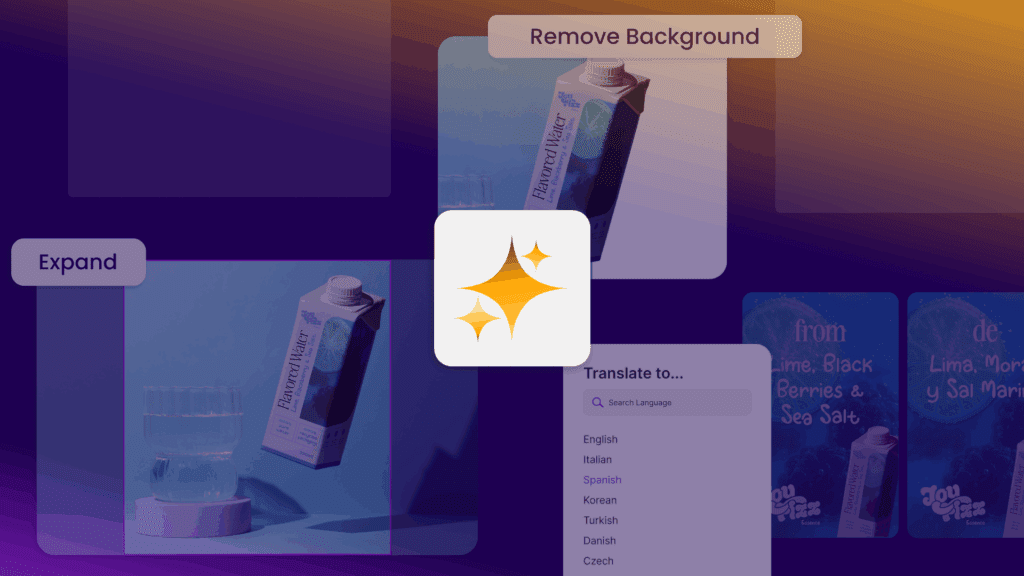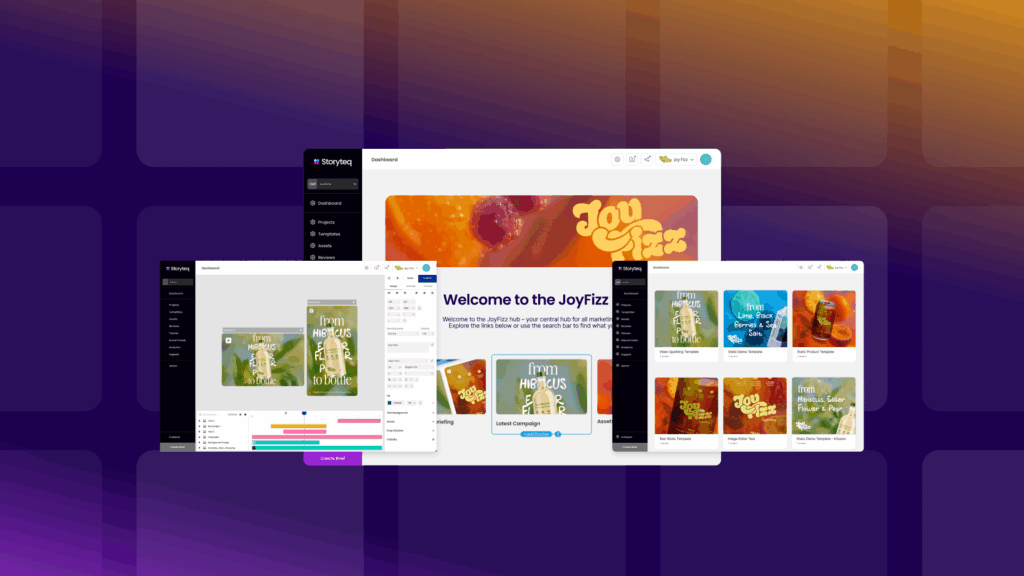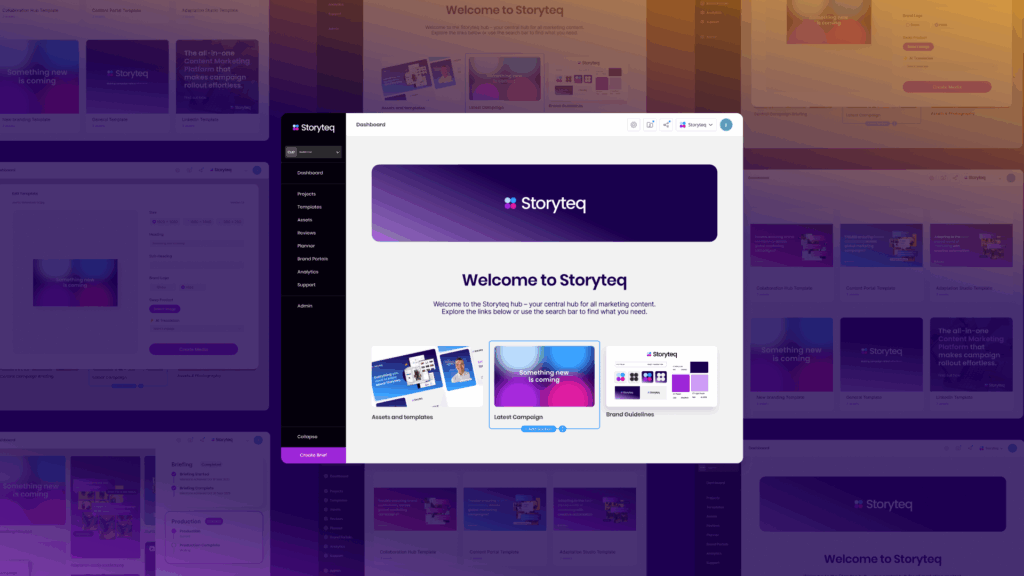What is a marketing automation platform and why does it matter?
Marketing automation platforms are comprehensive software solutions that help you automate repetitive marketing tasks, streamline workflows, and deliver more personalized customer experiences across multiple channels. Unlike basic marketing tools that handle isolated functions, a robust marketing automation platform integrates various marketing processes into a cohesive ecosystem that works in harmony to drive efficiency and results.
The evolution from manual marketing to automated solutions has transformed businesses of all sizes. Today, you and your marketing team face constant challenges to produce more content across more channels while maintaining brand consistency and personalization. This demand makes manual processes unsustainable, driving the widespread adoption of automation technologies that handle the scale and complexity of modern marketing operations.
What truly differentiates comprehensive marketing automation platforms from simple tools is their ability to create interconnected workflows where actions in one channel trigger responses in others. This creates seamless customer experiences while reducing your manual workload. This interconnectivity helps you manage multiple platforms and channels efficiently, eliminating the need to switch between numerous apps dozens of times daily.
Key features of effective marketing automation platforms
The most powerful marketing automation platforms combine several important capabilities that work together as an integrated ecosystem rather than as isolated tools. Email marketing automation forms the backbone of many platforms, enabling triggered communications based on user behavior, scheduled campaigns, and personalized content delivery that adapts to recipient engagement patterns.
Customer segmentation and lead scoring capabilities allow you to categorize contacts based on demographics, behaviors, and engagement levels, then prioritize them according to their likelihood to convert. This intelligent audience management connects directly with workflow automation triggers that can initiate specific marketing actions based on predefined criteria—such as sending follow-up content when a prospect views a particular page or completes a form.
CRM integration is another useful feature, creating a seamless connection between marketing and sales data that enables both teams to work from a unified customer view. This is complemented by robust analytics capabilities that track campaign performance across channels and attribute results accurately. Multi-channel campaign management allows you to coordinate messaging across email, social media, web, and other touchpoints while maintaining consistent branding and messaging.
How can marketing automation improve your customer journey?
Marketing automation transforms customer experiences by delivering the right message at precisely the right moment in the buyer’s journey. At the awareness stage, automation can identify and capture leads through form completions, content downloads, or website interactions, then immediately begin nurturing relationships through targeted content delivery based on demonstrated interests.
Behavioral triggers represent one of the most powerful automation capabilities, enabling systems to recognize specific actions—such as abandoning a shopping cart or repeatedly viewing a product page—and respond with contextually relevant messages. This type of real-time responsiveness was impossible with manual processes but becomes scalable through automation, creating more personalized experiences without increasing your workload.
Progressive profiling is another valuable automation feature that incrementally builds customer profiles by collecting additional information across multiple interactions, rather than overwhelming prospects with lengthy forms at first contact. As your automation system gathers this data, it can deliver increasingly personalized content that speaks directly to individual needs and preferences, strengthening customer relationships while improving conversion rates at each journey stage.
Types of marketing automation platforms: choosing the right solution
The marketing automation landscape offers diverse solutions designed for different business needs and objectives. Enterprise platforms provide comprehensive functionality with extensive customization options and robust integration capabilities but often come with longer implementation timelines and higher price points. SMB-focused solutions typically offer more straightforward setup processes and user-friendly interfaces with core functionality at more accessible price points.
The choice between all-in-one platforms versus specialized tools represents another important consideration. All-in-one solutions provide integrated capabilities across multiple marketing functions, reducing the need for separate systems and simplifying workflow management. Specialized tools, by contrast, excel in specific areas like email automation or social media management but may require integration with other solutions to create a complete marketing technology stack.
When evaluating platforms, scalability deserves careful attention. Your chosen solution should accommodate your current needs while providing room for growth as your marketing operations evolve and expand. This includes considering how easily the platform can adapt to increasing volumes of contacts, campaigns, and content, as well as how flexibly it can integrate with new channels or technologies you might adopt in the future.
How to measure ROI from your marketing automation investment
Calculating the return on investment from marketing automation requires examining both efficiency gains and revenue impacts. Time savings represent one of the most immediate benefits, as automation eliminates many manual tasks that previously consumed your marketing resources. You can measure these efficiencies by comparing the hours required for campaign execution before and after implementation, then calculating the associated labor cost reduction.
Campaign effectiveness metrics provide another critical measurement dimension, including improvements in open rates, click-through rates, conversion rates, and ultimately, revenue generation. You can assess lead quality improvements by tracking changes in sales qualification rates and average deal size, while customer retention metrics help quantify automation’s impact on existing customer relationships.
Attribution modeling plays an important role in accurately connecting marketing automation efforts to business outcomes. Basic models might assign credit to the first or last touchpoint before conversion, while more sophisticated multi-touch attribution distributes credit across all interactions in the customer journey. The most effective approach combines quantitative metrics with qualitative assessments, recognizing that automation’s full impact extends beyond easily measurable outcomes to include improved brand consistency, enhanced customer experiences, and greater marketing agility in responding to market changes.
By implementing a comprehensive marketing automation platform that aligns with your specific business needs, you can transform your marketing operations from a series of disconnected manual tasks into a strategic, data-driven engine. We help you deliver consistent results while freeing your team to focus on creative strategy and innovation. We understand the challenges you face in modern marketing and have built our solutions to address these specific needs.
Ready to take your marketing automation to the next level? Request a demo today to see how we can help transform your marketing operations.



